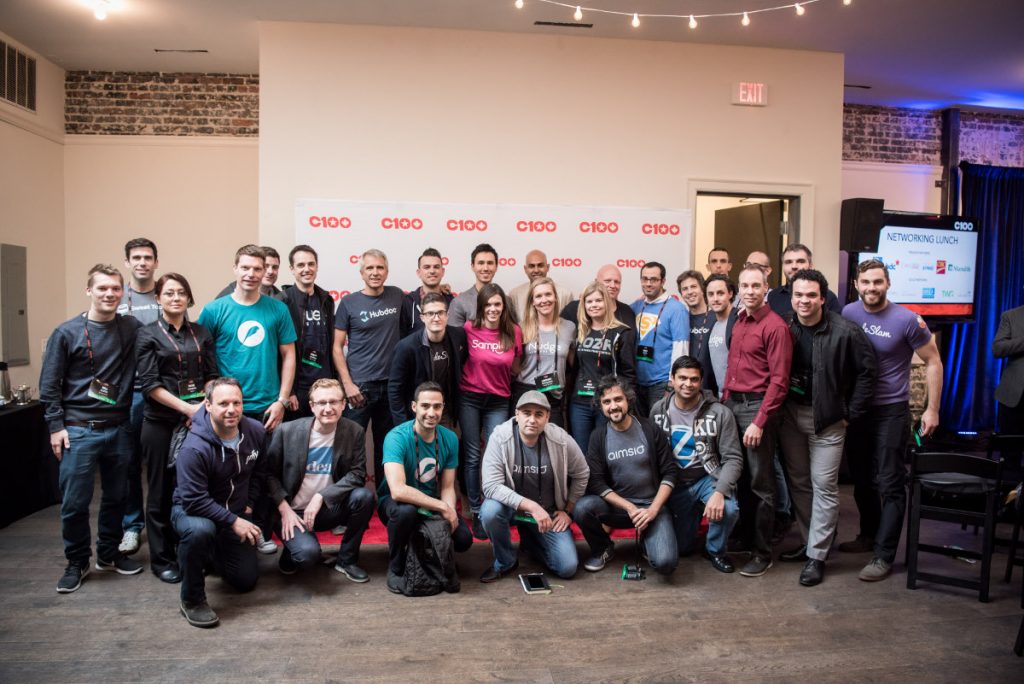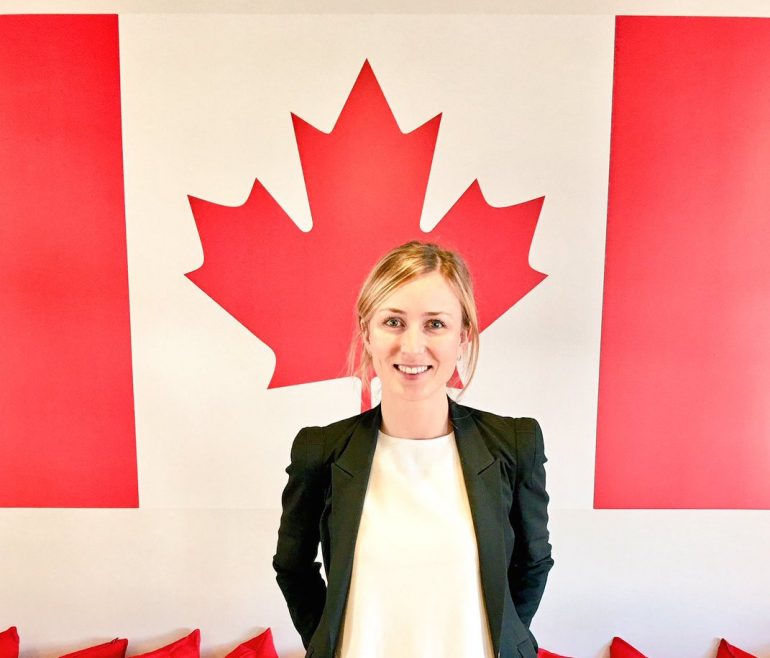When Laura Buhler was announced as C100’s executive director in February, interim executive director Terry Doyle said the former Gilt director was coming on during a “unique time in Canada.”
Buhler suggested as much as she explained to BetaKit how the organization is preparing to scale its program alongside Canada’s startups.
“If you look at where Canada was when C100 started back in 2009, the startup ecosystem in Canada looked very different. All of C100’s activities, for the most part, would have been dedicated around really trying to ignite that early-stage entrepreneurship,” Buhler said. “The area where we get asked to help a lot, in addition to access to capital, is just access to markets — what that means is people are talking about scale.”
“We inspire some of the most promising Canadian entrepreneurs to build the next generation of successful companies in Canada.”
– Laura Buhler, C100 executive director
C100’s plan for adjusting to the rise in Canadian growth stage startups is a change to its formal mentorship component run alongside the 48 Hours in the Valley program, which brings founders to the Valley for two days of networking and workshops. Buhler says that many of its Valley-based mentors are founders or executives themselves, and C100 is structuring the program to ensure that the relationship lasts longer than 48 hours. C100 will now connect founders and mentors well in advance, to give mentors an idea of where companies need the most help, and they must meet at least twice before the cohort begins.
“It could be anything, from advice on access to markets, or how to recruit the next team right after they’ve just raised money,” said Buhler, who added that mentors are hand-picked for each company based on need.
“I know that a lot of these relationships have lasted a couple of years; that actually is a great way that entrepreneurs back home stay very connected with C100 if they want to.”
Recently, the organization announced a partnership with RBC in an attempt to make its program more accessible; for seed stage companies, C100 runs Valley 101 workshops in Silicon Valley, giving founders the chance to ask investors and fellow entrepreneurs for advice and feedback. C100 is working with RBC to launch a content platform featuring stories from successful entrepreneurs, and advice for founders similar to what they would get from a Valley 101 session.

“It’s an effective medium to inspire and inform people, which is a great opportunity to be able to get to entrepreneurs. Many are our clients and say, ‘we think this is an interesting illustration of what others are doing in the world,’ and that may inspire them to do things in a different way,” said John Stackhouse, SVP at RBC. “We know that no organization, big or small, in the world today is going to solve the problems it’s taking on on its own. We’re looking to others, whether they’re big or small, to work together. But more, critically than that, is our belief that we are in a transformative economic age, and Canada is incredibly well-positioned to be a global leader in innovation.”
Buhler points to C100’s charter members to make the point that there are many experienced Canadian entrepreneurs outside of Canada interested in building the ecosystem at home, and says that C100’s mission is to bridge that gap. “There’s a lot of best practices, experience, passion, and thought leadership that if we organize, they can really help the folks coming up and building great businesses in Canada,” she said. “We inspire some of the most promising Canadian entrepreneurs to build the next generation of successful companies in Canada.”


